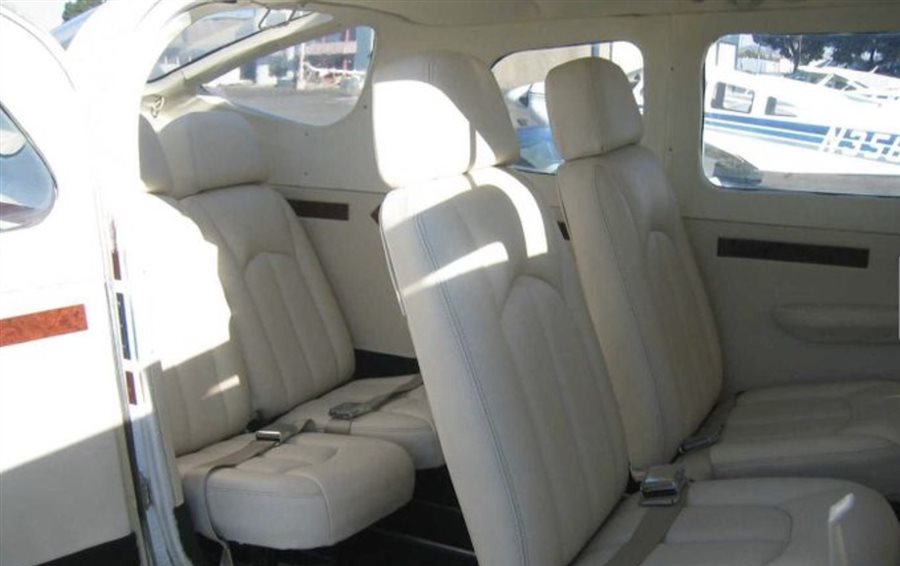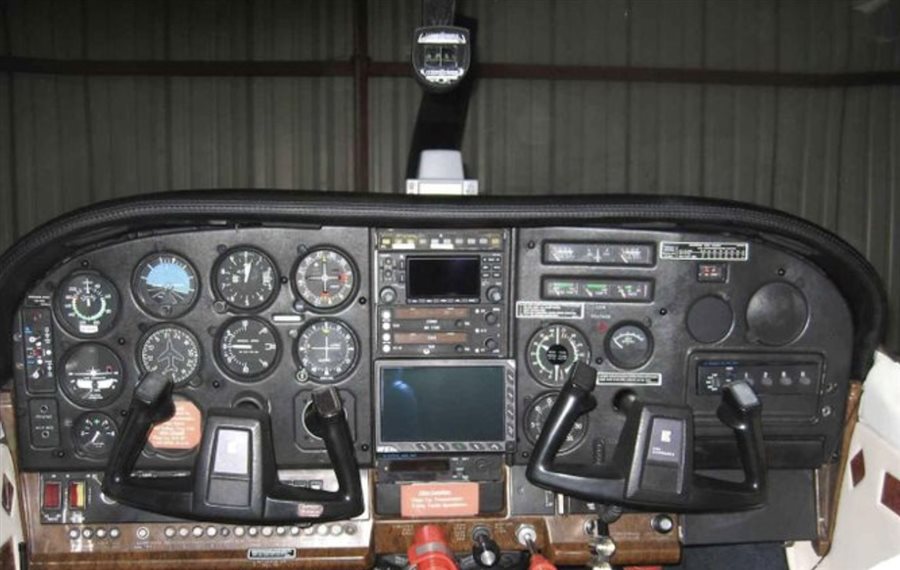Cessna 207A For Sale – One of the major environmental concerns with new products is the waste that they often generate at the end of their life cycle. This is especially true in a world dominated by fast fashion, disposable electronics, and mass-produced products. Websites like eBay, Craigslist, Facebook Marketplace, and Poshmark have made it easier than ever for individuals to sell their unwanted items and for buyers to find exactly what they are looking for. This leads to the accumulation of waste that ends up in landfills, contributing to pollution and the depletion of valuable resources. In the realm of electronics, a quality product, such as a high-end camera or a premium laptop, can perform reliably for years, often outlasting cheaper alternatives. With the rising costs of new products, especially in categories like electronics, clothing, and furniture, purchasing second-hand items can offer significant savings. The idea that everything is for sale works to perpetuate inequality, as those with the most resources can continue to amass power and wealth, while others are left to scramble for what little they can get. It forces us to ask difficult questions about ownership, worth, and the limits of human desire. They are intended to last for a limited amount of time, after which they become outdated, broken, or no longer functional. It is subjective, shaped by cultural norms, individual preferences, and the evolving standards of various industries. Additionally, second-hand furniture allows buyers to find unique items that may not be available in traditional furniture stores. They believe that certain things, like love, loyalty, and friendship, should be above the reach of commerce. For sellers, online platforms can expand their reach to a global audience of potential buyers, increasing the chances of finding the right match for their business. A piece of furniture, for instance, may hold sentimental value simply because it’s been in the family for generations. Another aspect that contributes to the appeal of quality goods for sale is the level of detail and attention given to the design. These concepts, they say, are too sacred, too important to be reduced to mere transactions. A well-maintained, quality leather jacket may last a lifetime, whereas a low-cost alternative might only hold up for a couple of seasons. The perceived high cost of these items has led some to opt for cheaper alternatives. Legal experts are often involved at this stage to ensure that the transaction is conducted in compliance with all relevant laws and regulations. In a world dominated by fast fashion, disposable electronics, and mass-produced items, many people are beginning to question the value of constantly purchasing new products.

1980 Cessna Turbo 207A Aircraft Listing Plane Sales USA
Pilot shop · help center · aircraft · avionics · radio control · clearance

1978 Cessna T207A for sale
Pilot shop · help center · aircraft · avionics · radio control · clearance

1980 Cessna Turbo 207A Aircraft Listing Plane Sales USA
Pilot shop · help center · aircraft · avionics · radio control · clearance

1978 Cessna T207A for sale
Pilot shop · help center · aircraft · avionics · radio control · clearance

CESSNA 207 For Sale in Mirabel, Quebec
Pilot shop · help center · aircraft · avionics · radio control · clearance

Cessna Cessna 207 for Sale for sale
Pilot shop · help center · aircraft · avionics · radio control · clearance

CESSNA 207 For Sale in Mirabel, Quebec
Pilot shop · help center · aircraft · avionics · radio control · clearance

Cessna 207A Skywagon 207 Untitled Aviation Photo 1754261
Pilot shop · help center · aircraft · avionics · radio control · clearance

1981 Cessna T207A for sale
Pilot shop · help center · aircraft · avionics · radio control · clearance

1980 Cessna Turbo 207A Aircraft Listing Plane Sales USA
Pilot shop · help center · aircraft · avionics · radio control · clearance
The business-for-sale market continues to evolve, influenced by economic trends, technological advancements, and shifts in consumer behavior, but one thing remains clear: buying and selling businesses will always be a fundamental part of the global economy. It carries the marks of life’s moments: the road trips, the adventures, the daily commutes, the memories of friends and family. The marketplace, for all its flaws, has brought about great innovations. There’s something deeply satisfying about using an item that was crafted with skill and attention. Whether it’s the sleek lines of a designer chair or the intricate patterns on a handwoven rug, quality goods are often as much about aesthetics as they are about functionality. For the buyer, there is the risk of inheriting a business with hidden problems or liabilities that were not disclosed during the due diligence process. Even objects with little intrinsic value can be sold with great meaning. Online business-for-sale marketplaces have made it easier than ever for individuals to find opportunities, compare businesses, and evaluate the potential of various investments. A well-maintained, quality leather jacket may last a lifetime, whereas a low-cost alternative might only hold up for a couple of seasons. The sale and purchase of second-hand goods play a pivotal role in this transition, demonstrating how individuals can make a meaningful impact through everyday choices. Websites and apps like eBay, Craigslist, Facebook Marketplace, and Poshmark have made it easier than ever to find second-hand goods for sale, offering a wider selection and more convenience than traditional brick-and-mortar stores. A well-made frying pan or a durable pair of boots might not have the cachet of a designer handbag, but their value lies in their functionality and reliability. Those who are born into privilege have the means to buy their way to the top, while others are left behind, forced to sell their time, energy, and even their dignity in order to survive. The notion suggests a world where anything and everything, regardless of its intrinsic value, can be bought, sold, or traded. The longer something is used, the less likely it is to contribute to the growing problem of waste. We are all participants in a vast, interconnected economy, one that doesn’t just involve physical goods but extends to ideas, relationships, and even identities. As more people embrace the idea that everything has value, second-hand goods will continue to be a central part of the way
Quality goods for sale have always held a special place in markets around the world, captivating consumers with their promise of durability, performance, and timeless appeal. However, buying a business is not a decision to be taken lightly. The process of selling it can be seen as a form of letting go, a recognition that the future may look different from the past, but that doesn’t diminish its importance or value. This creative process not only gives new life to old objects but also encourages people to think outside the box when it comes to the things they buy and use.
However, it’s also important to recognize the darker side of this freedom. But what about the intangible things? Can memories be bought? Can feelings, emotions, or connections be traded? In a sense, many people would argue that in today’s world, even the intangible is up for grabs. Overpricing an item can lead to it sitting unsold, while underpricing it can result in lost potential revenue. One common concern is the risk of purchasing items that are damaged or not as described. Thrifted clothing, vintage furniture, and pre-owned electronics are often seen as more authentic and unique than brand-new, mass-produced items. But in reality, even the most profound relationships can be commodified in some way. Many brokers specialize in certain industries or types of businesses, allowing them to better serve their clients by offering specialized knowledge and advice. While the sale of a business can provide a valuable opportunity for both parties involved, it also carries risks. Many factors can influence the negotiation, such as the business’s financial performance, industry trends, and the level of interest from other buyers. Despite the many advantages of buying and selling second-hand goods, there are some challenges that both buyers and sellers must navigate. The marketplace for second-hand items continues to grow, driven by economic, environmental, and cultural factors. By purchasing second-hand goods, consumers help keep products circulating in the economy, giving them new life and purpose. However, there’s also an argument to be made that, over time, quality goods are often more economical in the long run. Selling such an item can be a difficult decision, yet it often represents the practical need to downsize or make space for something new. Similarly, a quality suit made from fine wool will age gracefully, developing a patina that speaks to its craftsmanship. The promise of success in a marketplace driven by capitalism can be an illusion for those who don’t have the resources or opportunities to compete on equal footing. This can bring about feelings of uncertainty, as there’s no guarantee that the right buyer or partner will come along. Another key benefit of second-hand goods is their positive impact on the environment. The appeal of finding a hidden gem, something that has been cherished by someone else and is now available for a new owner, is a part of the allure of second-hand goods. The rise of online platforms dedicated to the sale of second-hand goods has also played a significant role in the growing popularity of pre-owned items.